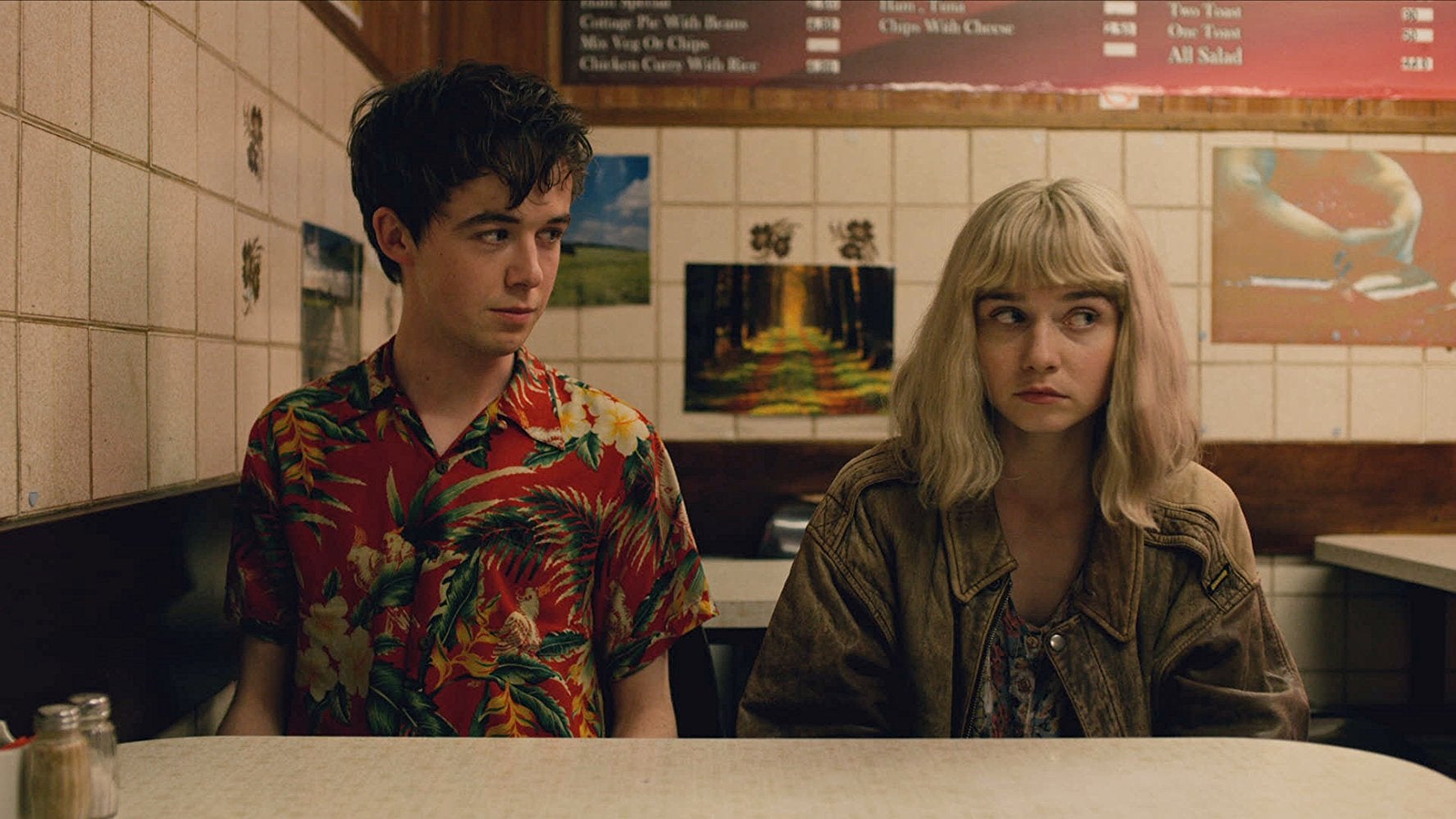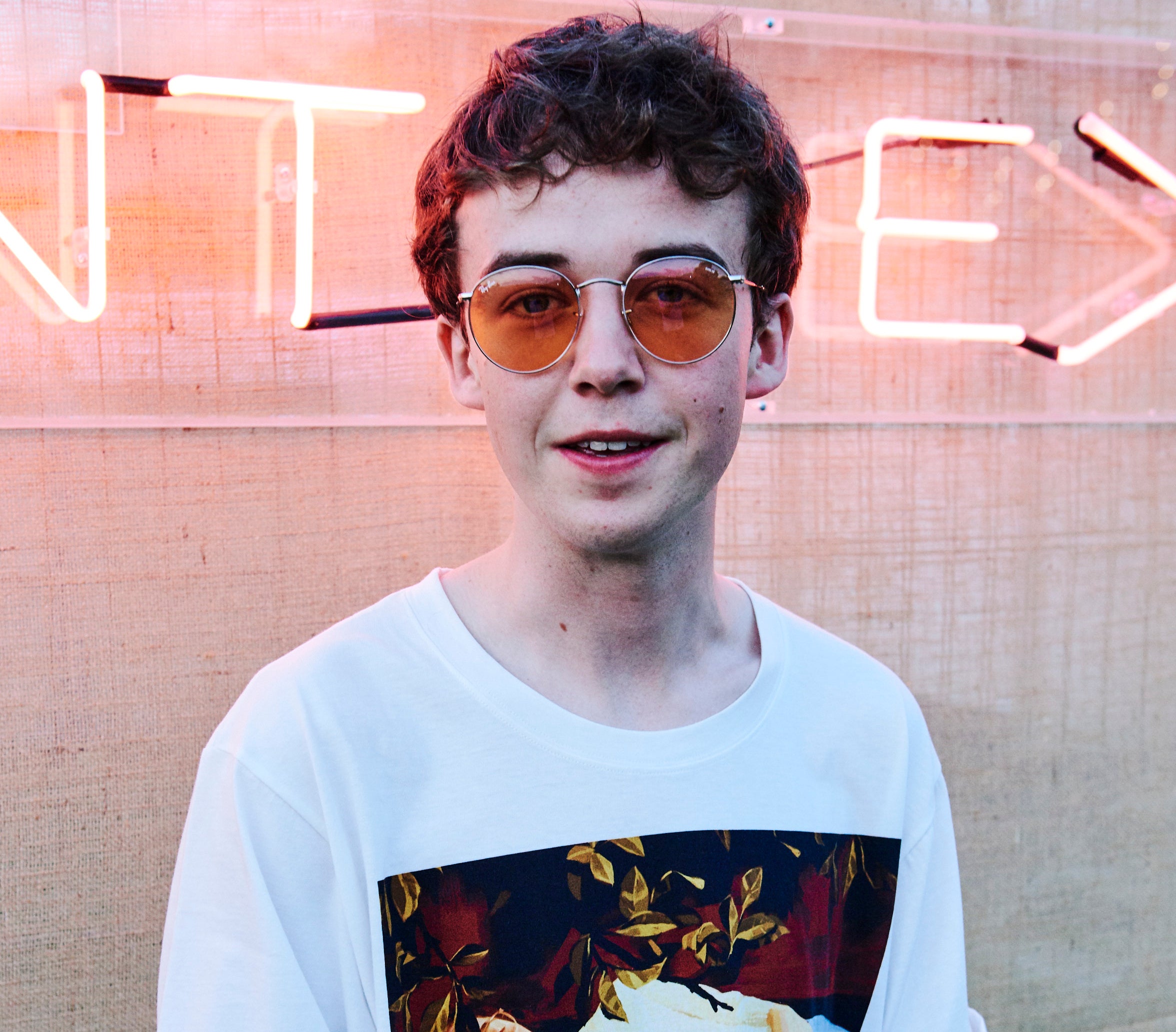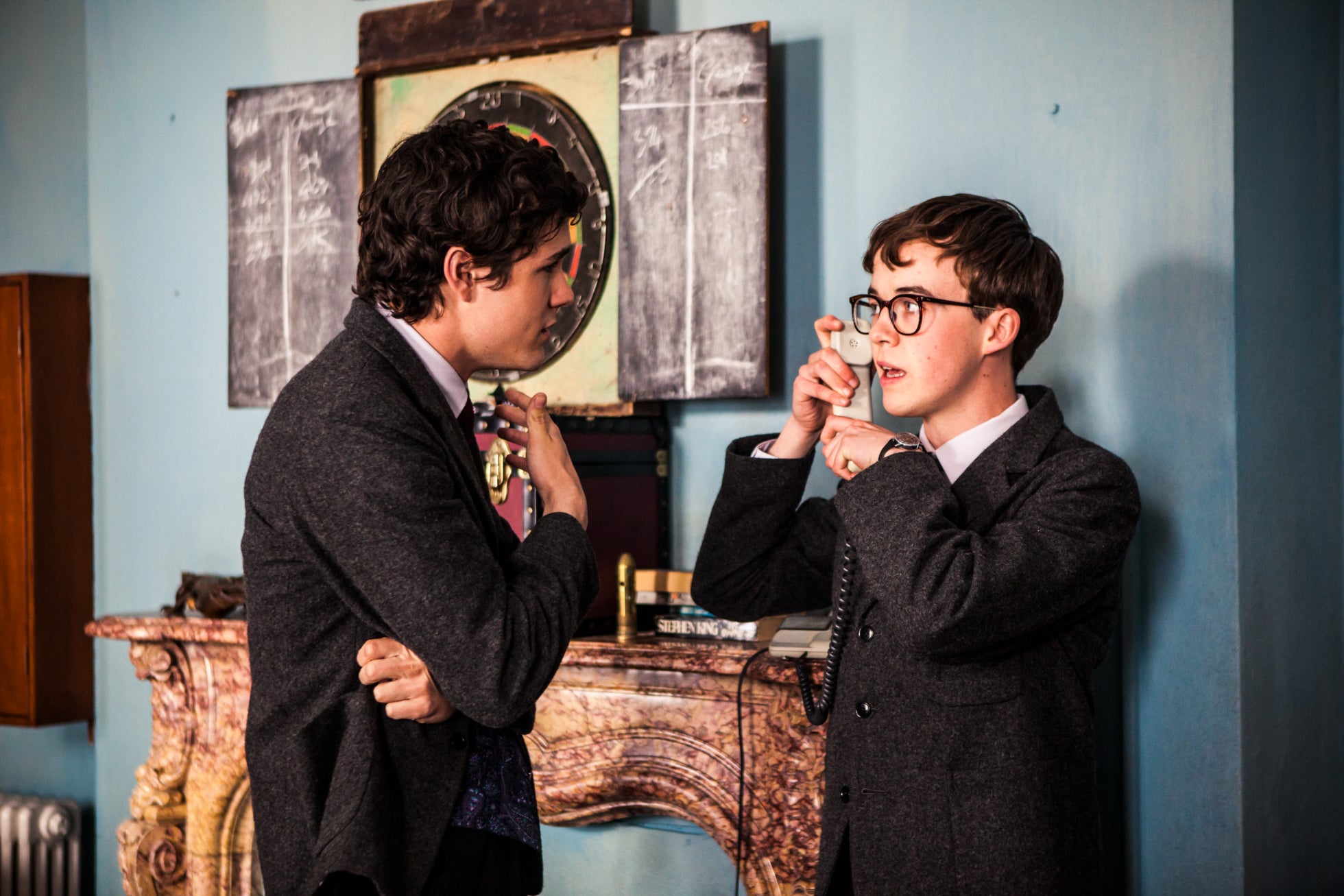Alex Lawther interview: ‘Post-decolonisation, private school institutions serve something that doesn’t exist anymore’
‘The End of the F***ing World’ star talks to Alexandra Pollard about his new film ‘Old Boys’, outdated British rituals, and why Frances McDormand’s Oscars speech gave him shivers


Alex Lawther is scrupulously polite. No sooner have I arrived to interview the 23-year-old than he is leaping out of his seat to fetch me a glass of water. “How has your day been?” he asks breathlessly on his return, placing the water in front of me and rearranging his floppy fringe.
He is not, in other words, the kind of person you would expect to play a paedophile, or an aspiring psychopath plotting to murder his friend. But those are the roles for which the young actor is best known – the former in a 2016 episode of Black Mirror, and the latter in the hugely successful Netflix series The End of the F***ing World. In both, he takes his jittery, Ben Whishaw-like charm – which he deploys to full effect in his new film Old Boys – and contorts it into something weirder and darker.
The End of the F***ing World, based on a graphic novel of the same name, has a somewhat grotesque premise. Lawther plays James, a 17-year-old who kills animals for fun, and then sets his sights on a human target: Alyssa (Jessica Barden). If that sounds a little troubling, Lawther agrees. “When Charlie Covell, our screenwriter, started reading the comic, before she reached the end she was worried. It’s kind of gross: a young man doesn’t know how to deal with his emotions, so he takes it out, violently, on a young woman. That’s not a story that she was interested in telling, and I wouldn’t have been either.” Thankfully, the plot goes down a very different road. “It becomes more complicated, and hopefully more and more human. They start out as sort of comic-book characters, and then unravel to become messy and sad and bleak.”

Lawther was surprised, he says with a spluttered laugh, when the show became so popular. “I don’t really understand how Netflix works,” he says, “but you can have a little show that just exists on there, and enough people talk about it and… it’s quite interesting that that word of mouth exists. There wasn’t much advertising for it, me and Jess aren’t stars, and we haven’t done an awful lot of work before. It was quite a small family affair, as it were.” Lawther’s speech is peppered with phrases such as “as it were”, “therefore”, “one always has to examine…” He doesn’t exactly speak like a 23-year-old.
Nor does he act like one. For one thing, he’s not on social media. “Wow, I’m chuffed,” he says when I tell him about an Instagram fan account with more than a quarter of a million followers. “I’m not on social media, at its most base level, just because it doesn’t really interest me. It doesn’t excite me, and I already use my phone too much, although for very practical reasons. I get asked sometimes, by quite angry people who’ve seen The End of the F***ing World, they say, ‘Just make an Instagram account!’ I like the idea of recognising that I don’t need to. Even yesterday, a friend was with a friend who said, ‘All the kids are doing it, does he want me to create an account?’ And I’m very capable, you know, I can do that, but as you’re more conscious of being in the world, and making something that people are watching, [I like] just being a voice that says, ‘You don’t have to enter the public eye in that way if you don’t want to’.”

In that respect, Lawther relates to “the very tactile” 1980s world in which his new film, Old Boys, is set. In the movie he plays Amberson, a hopelessly awkward public schoolboy recruited to help his handsome, dim classmate Winchester (Jonah Hauer-King) woo the daughter of their new French teacher. As with The End of the F***ing World, it’s a potentially problematic storyline – boy tricks girl into falling in love with him – but it, too, is just about self-aware enough to get away with it. “She’s obviously much more brilliant and smarter and wiser than these two fools,” says Lawther of the love interest Agnes, played with quiet self-assuredness by Pauline Etienne. “She’s courageous in ways that they’re not. If I wanted to be any character in the film, I would be Agnes. Among these useless men, she somehow managed to come out brave and sure of herself, in a way that no one else in the film really is.”
Beyond its central love triangle, the film is painfully astute at capturing the ludicrous rituals of public schools. The school motto is “act manfully”; the boys play a violent, fictitious ball game called “Streamers”, and have to stamp their feet in unison whenever the school’s founder is mentioned.
“These weird rituals, and coded ways of behaviour – it continues into professional life and adult life,” says Lawther. “These institutions were created for a certain purpose that doesn’t exist anymore. And post the Sixties and decolonisation, these British school institutions serve something that doesn’t exist anymore, and these boys are being trained up for a world that is changing. When you see the House of Commons, and you see the yelling, and you see these stories about David Cameron and pigs, you just think, these things sound medieval and anachronistic. But although there are these empty shells that we see echoes of in politics and the business world, hopefully we’re realising more and more how ridiculous they are, and how little they represent us.”

It’s a world that’s not entirely alien to Lawther, who went to private school in Hampshire. In fact, in an interview last year he described growing up “in a white middle-class bubble”. That admission became the headline. “Oh yeah, that was awful!” says Lawther. “I didn’t mean to signpost that!”

Watch Apple TV+ free for 7 day
New subscribers only. £9.99/mo. after free trial. Plan auto-renews until cancelled.
ADVERTISEMENT. If you sign up to this service we will earn commission. This revenue helps to fund journalism across The Independent.

Watch Apple TV+ free for 7 day
New subscribers only. £9.99/mo. after free trial. Plan auto-renews until cancelled.
ADVERTISEMENT. If you sign up to this service we will earn commission. This revenue helps to fund journalism across The Independent.
He’s glad, though, he’s out of that bubble now. “Some of my ways of seeing the world,” he admits, “they were liberal and left wing, but they were assumed, and they were never tried and tested, and I was never asked to work out what exactly it was I was trying to say with my work. I’ve been doing a play for the last six months called The Jungle, and it was the first time that I’ve really done a piece of work that was overtly political. When I first started working, I wasn’t aware that my work could actually be in conversation with the rest of the world. I’m glad that I’ve come of age in this period, where people are talking and questioning, and actors are being forced to really think about the choices that they’re making, and how that reflects what they think about the world.” He heaves a demonstrative sigh. “Heavy!”
I’m reminded of Frances McDormand’s Oscars speech, in which she encouraged her fellow actors to write diversity clauses into their contract. “Yeahhhh,” says Lawther, leaning forward in his seat. “I just got shivers thinking about that moment, where she says, ‘I’ve got two words for you: inclusion rider’. I was thinking, oh f**k, we can do that?”
Old Boys is out in UK cinemas now.

Join our commenting forum
Join thought-provoking conversations, follow other Independent readers and see their replies
Comments
Bookmark popover
Removed from bookmarks